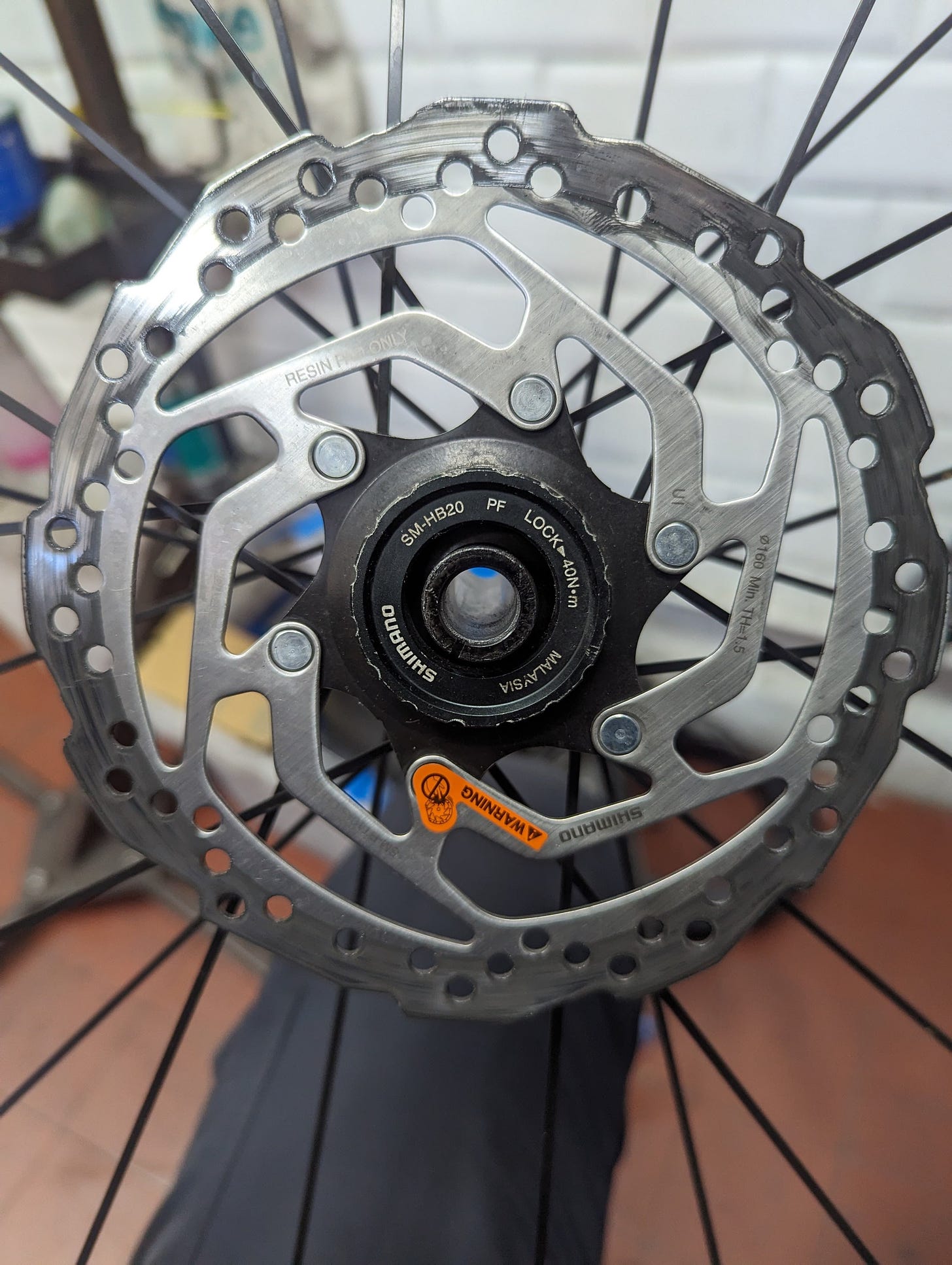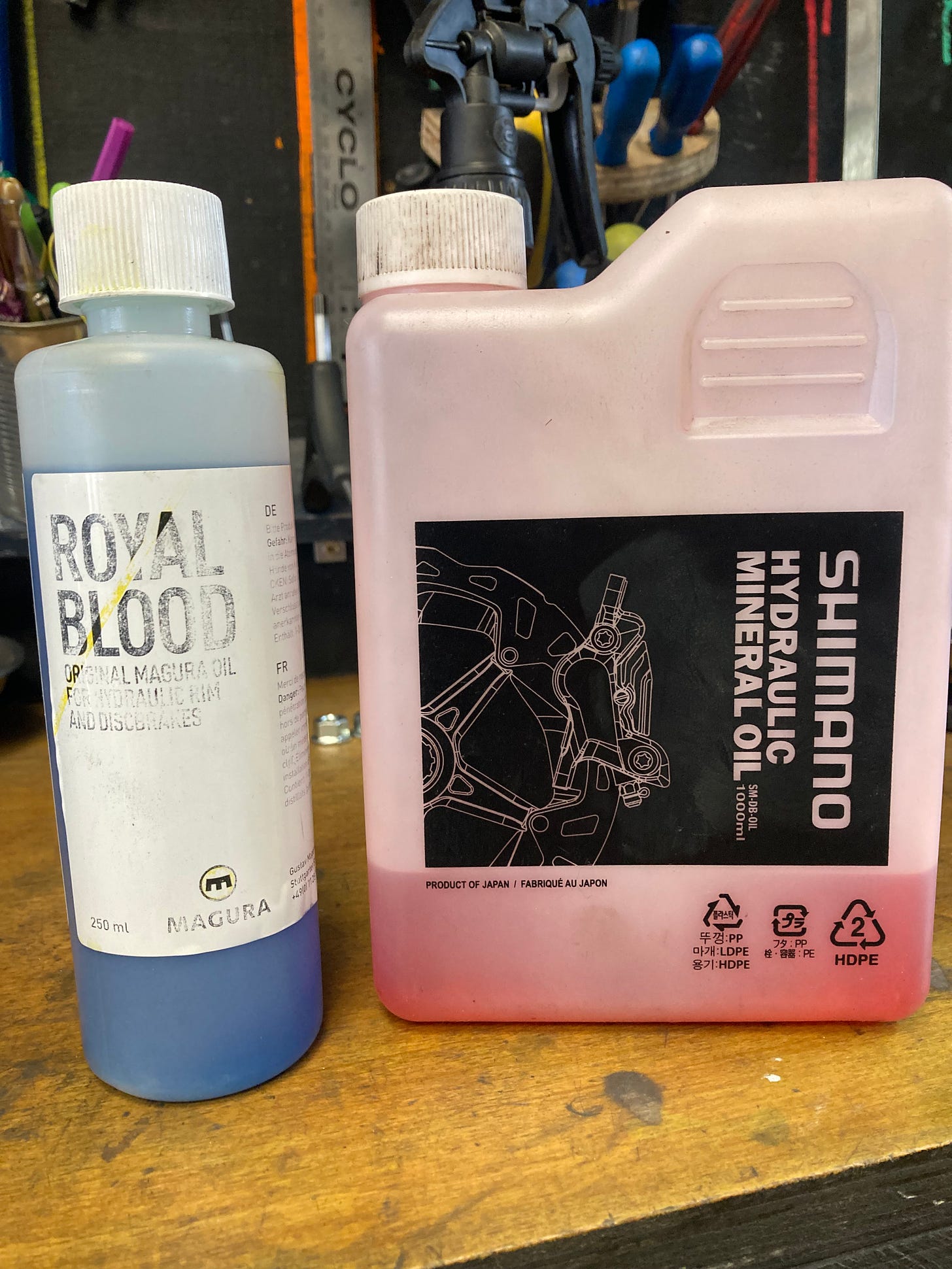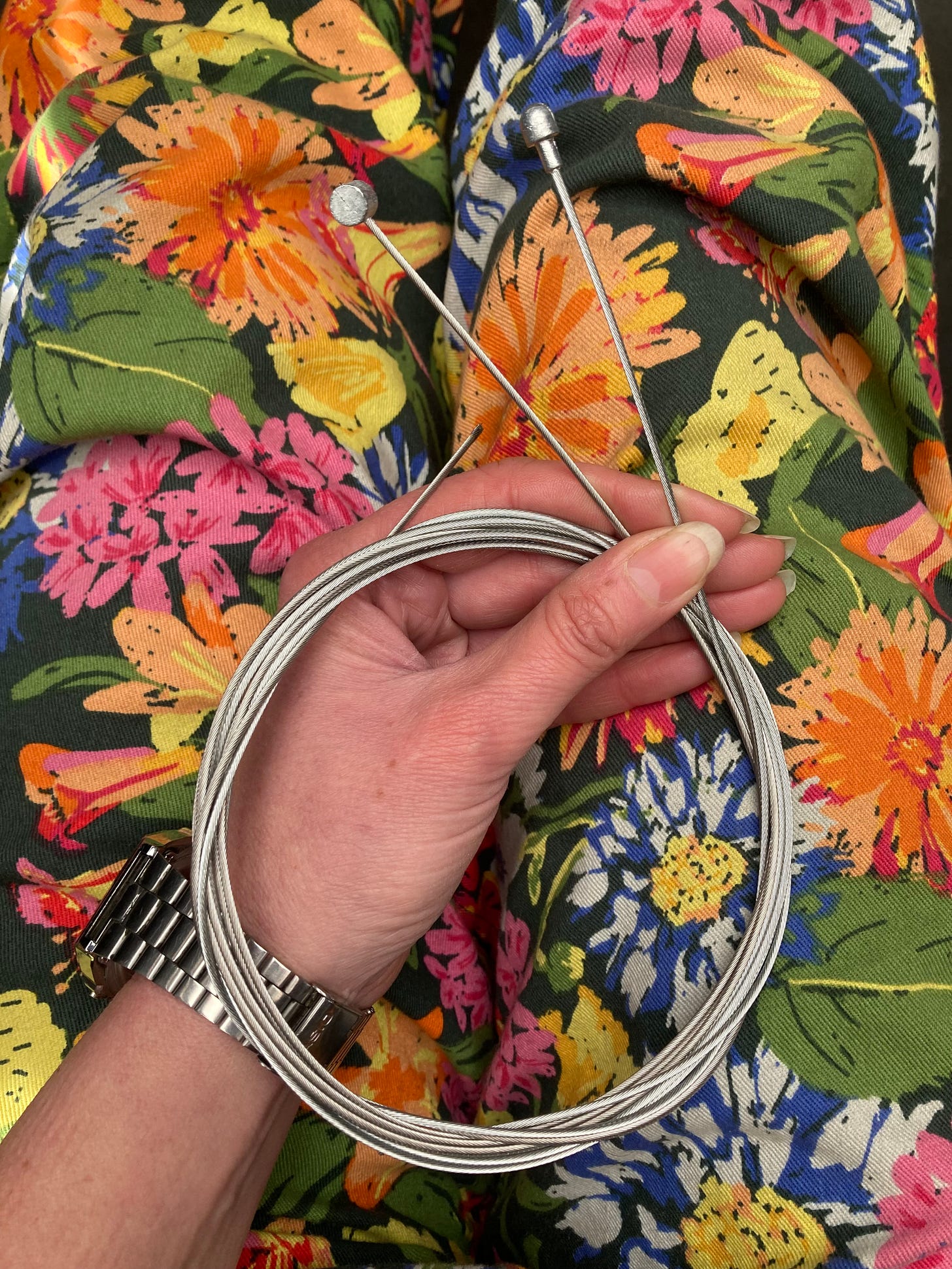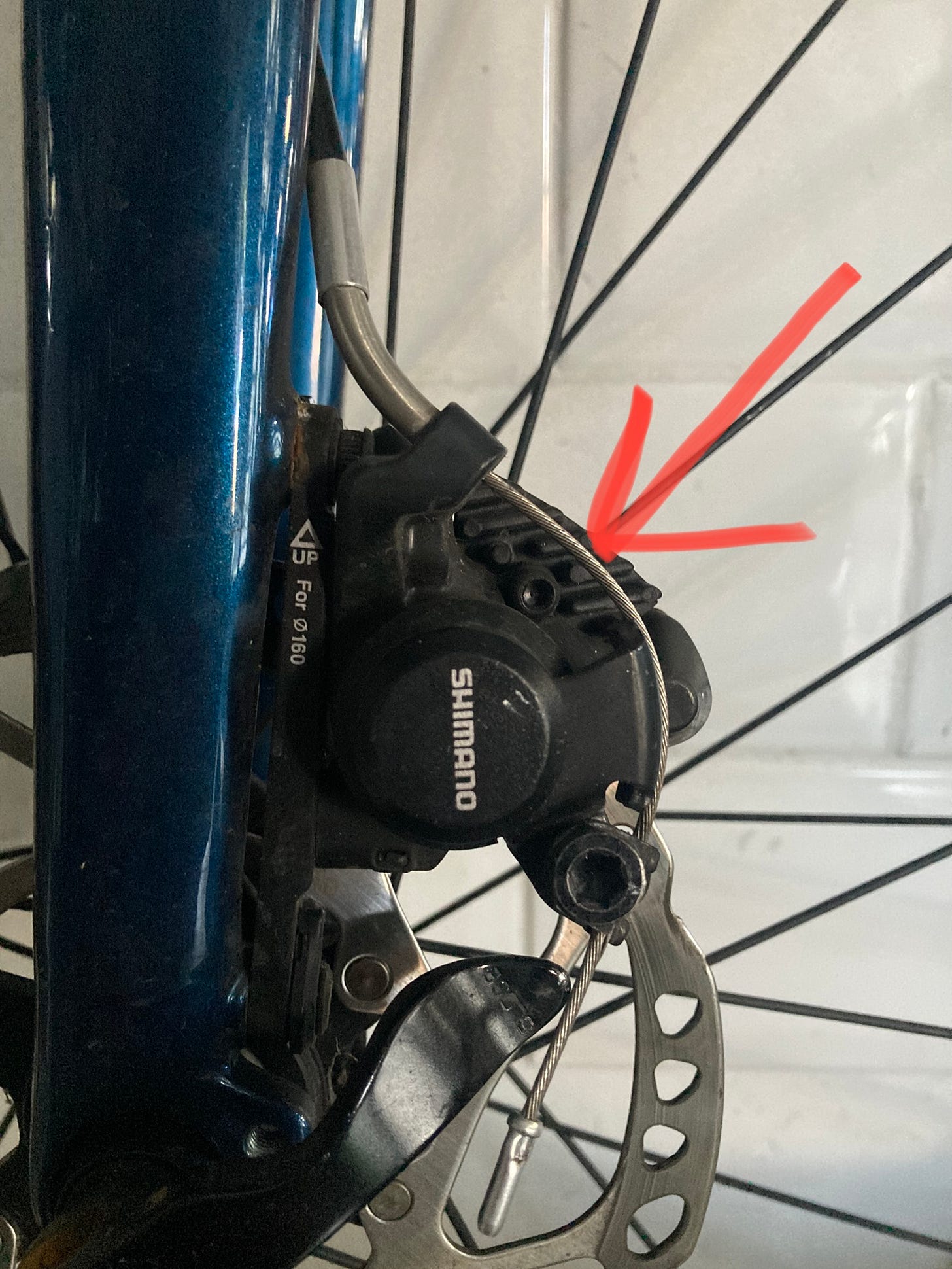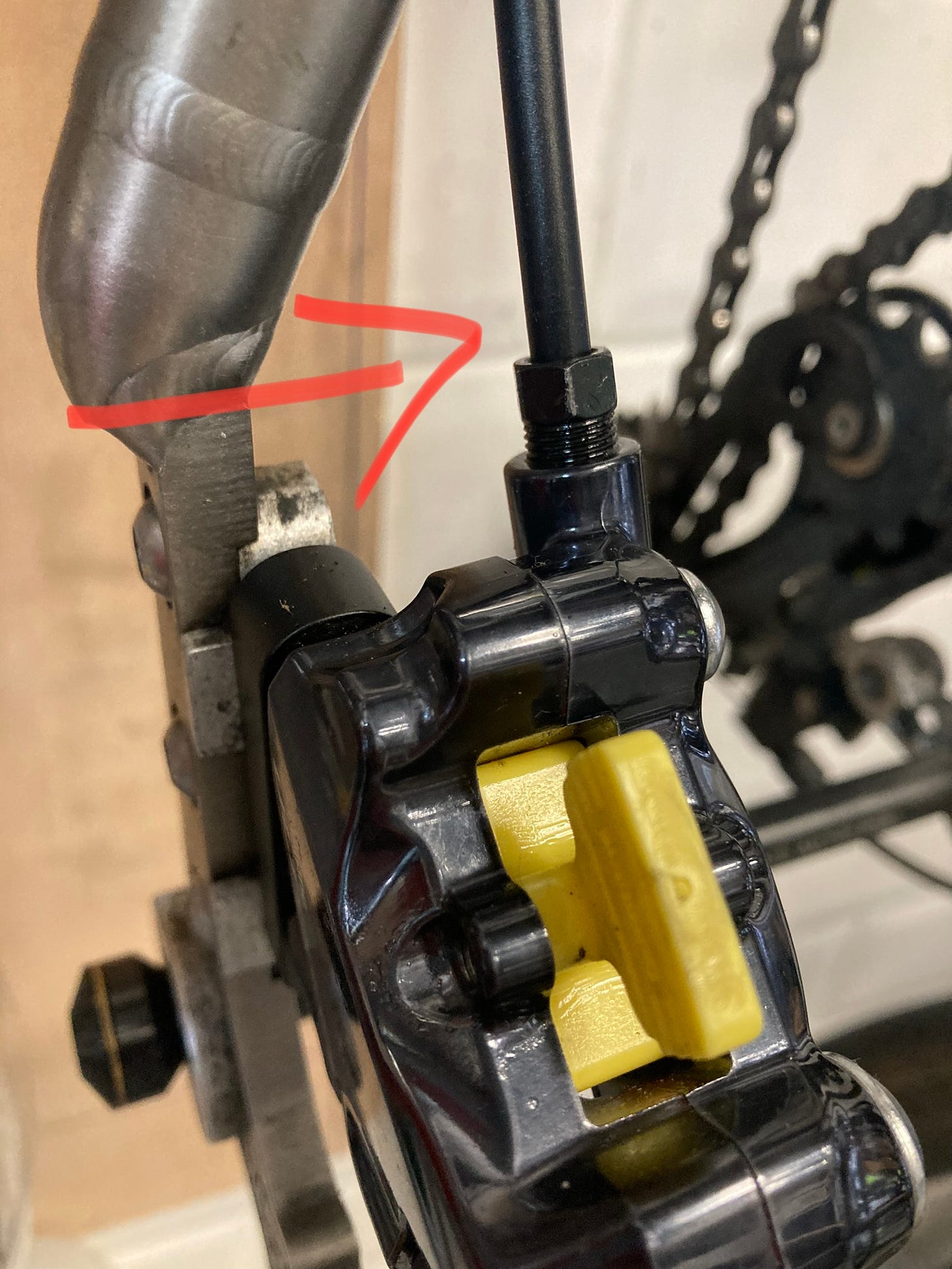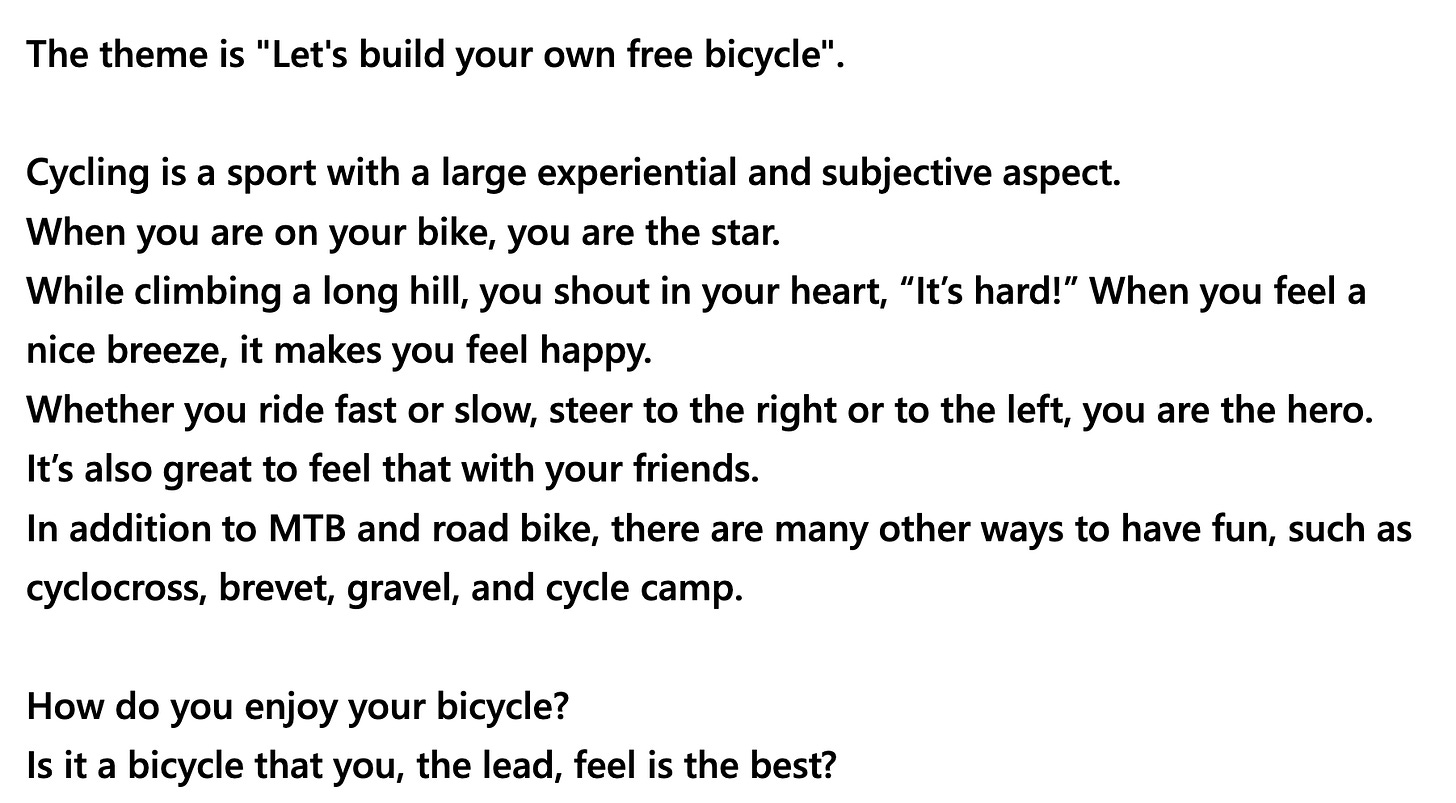"What's the difference between hydraulic and mechanical disc brakes?"
And maybe mechanical discs have gotten better...
This newsletter would have come out sooner if it wasn't for my partner informing me of some new mechanical calipers on the block - I have gone on a Growtac deep dive and have just resurfaced. Initially I was angry, thinking "I have to write this newsletter all over again!?" but no - the generalities are still the same. But there's new intel out there my friends. We just have to readjust what we know. Read on for more.
If you're buying a new road/MTB/gravel bike these days, you will not have a choice between disc or rim brakes anymore. Instead, you'll have a choice between hydraulic or mechanical disc brakes.
(Well, Actually voice: “Technically a rim brake is also a disc brake, as the brake caliper clamps down on a very large disc, i.e. the wheel.” 🤓)
I have my own gripes with disc brakes (I am a retrogrouch after all) but the industry has decreed that disc brakes are here to stay, and so I acquiesce. Disc brake knowledge has been added to our repertoire of helping you understand what the heck is going on with bikes these days.
What's a disc brake?
These newfangled brakes are not new in the automotive/motorcycle world - take a peek inside a car or motorcycle's wheel and you'll see a large disc hidden inside.
The disc is also known as the rotor, or the disc rotor. (It's confusing, I know.) It is also not spelled disk. I have no answer for this.
The caliper is the part that holds the brake pads, and when you squeeze your lever, either a cable or fluid will push pistons, which compress the brake pads onto the rotor.
Hydraulic disc brakes use a fluid.
Mechanical disc brakes use a cable. (This is the steam punk/analogue version.)
And there you have it friends, the main difference between a hydraulic and a mechanical system is how it's actuated.
What type do you have?
Have a look at the caliper. Does it have a snippet of silver cable sticking out? If so, it's a mechanical disc brake.
If the black housing enters the caliper directly, that's actually brake hose and is part of a hydraulic braking system.
FUN FACT
You *could* use any kind of fluid in a hydraulic system, even water. The problem is the boiling point. Disc brakes get really hot when you brake, and so water will evaporate faster than hydraulic fluid, leaving you with nothing to pump those pistons. Yikes.
Stick to the fluid that your system calls for.
Advantages/Disadvantages?
Upsides in general
The disc rotor is worn down instead of the entire wheel rim, prolonging the life of the wheel itself
Better braking in muddy conditions, no buildup of gunk between the wheel and frame
Downsides in general
That infernal honking!
Not all systems are created equal in terms of quality/longevity/compatibility
Requires a specific frame/fork
So many different pad shapes!
Those infernal adaptors!
Upsides to hydraulics
Efficient braking that recenters itself, even as the pads wear down
Sounds fancy and high tech
It’s what the pros are (forced) to use
Downsides to hydraulics
Proprietary and expensive systems
Top ups and bleeding can be time consuming and a faff if you're not used to doing it
Can get messy! Mechanic Charlie once squirted her eye with a rogue lever. Thankfully it was a mineral oil system and not DOT fluid which is corrosive
Over the years, mechanical disc brakes accumulated a bad rap in our workshop - they just didn't work that well and when compared with hydraulic systems it seemed like no contest. But there have been some recent developments to make mechanical calipers perform better than ever.
Compressionless housing: #1 upgrade!!!
Enhance your mechanical disc braking experience by upgrading to compressionless brake housing (Jagwire and TRP make these) - they make a world of difference.
I’m also intrigued by the new die drawn cables as they do not use carcinogenic PTFE coatings; instead they are mechanically shaved down to smoothness (drawn through a die, hence the name).
Concave/convex washers to reposition the caliper
Disc brake mount facing capabilities for better caliper positioning
Upsides to mechanical
Might be better for cycle touring (parts & tools more readily available)
You can use existing rim brake levers, they don't have to be proprietary hydraulic ones (however, there is a difference in drop bar and flat bar lever pull ratios - beware!)
Downsides to mechanical
Requires more attention throughout the year, adjustments to the pad position and even the cable tension will likely be necessary (we do a class!)
Usually put on cheaper bikes that don’t have properly faced mounts or compressionless housing
Dual piston mechanical can feel more like hydraulic but requires more moving parts, so there's more to go wrong, and it weighs more
I don’t recommend combination brakes like the TRP Hy/Rd (I do not want to try bleeding that tiny little hydraulic chamber in the caliper.)
As ever, there are pros/cons to every system. And there are people who geek out on this. If this is you, here's a couple useful videos about the new mechanical disc brake systems. And if you want to go on a deep dive, here’s a PDF from Growtac. (Note: they are a Japanese company and their translation is delightful - I really recommend reading it 😂)
Or you might not be interested in this at all, which is ok too! But no matter which type of system you have, you still need to do some basic maintenance. Check out our upcoming Disc Brake Home Maintenance classes:
Tuesday 23 April 6 - 9pm (1 spot left!)
Saturday 4 May 3 - 6pm (May the 4th be with you)
Tuesday 14 May 6 - 9pm
DISADVANTAGE: HONKING
Both mechanical and hydraulic disc brakes will encounter this issue. This is usually because something is contaminated/dirty. Get thee to our Disc Brake Home Maintenance class to learn how to clean them! You'll also learn when and how to replace brake pads and rotors.
Disc brakes are a minefield of new knowledge: IS/Post/Flat mounts, adapters between the three mounts plus front versus rear plus the different rotor sizes (140/160/180/203/???), centre lock versus 6 bolt... book yourself onto our Disc Brake class to learn what in tarnation all this word vomit is!
In some rather delightful news,
Cloake is now on Substack and is keeping a journal of her upcoming food themed cycle tour across the US. She even name drops yours truly and gives props to our Emergency Roadside Repairs class.Updated Bike BDS List?
I have just checked out the Israeli cycling team's home page, and it looks like Maxxis, Orange Sealant, and Hammerhead have been quietly removed from their sponsorship list. This is a big deal if they've pulled out as sponsors. Boycott/Divest/Sanctions are one of the few easy and simple ways to pressure governments, organisations, and businesses to make a change that they don’t want to do. Shame + the witholding of consumer power can be useful sometimes.
I have emailed Maxxis, Orange, and Sram (Hammerhead) for clarification. If it is true, I will create a new BDS list to be circulated and shared.
Gaza Sunbirds: #LetThemRide
Support Gazan Paracyclists to represent Palestine at the upcoming Paralympics.
Sign - this petition calling for Belgian and Italian authorities to grant visas to the athletes so that they can compete in qualifying races for the Paralympics where they can realise their dream of being the first ever Palestinian delegation, composed entirely of athletes and technical support from Gaza
Email - Belgian and Italian Internal Ministry and Embassies in Egypt, email asking them to grant visas: cairo.visa@diplobel.fed.be | federico.novellino@esteri.it
Stand - at rallies, protests and events - like the Great Ride of Return global synchronized solidarity cycles - to raise awareness about the Gaza Sunbirds plea to represent Palestine in the Paris 2024 Paralympics
Share - message with your friends, family and networks through word of mouth or social media
Support - by donating to their fundraiser
For our paying newsletter subscribers, I’ll be digging into the archives of our Covid online classes and will be teaching my ‘Bike Whisperer’ seminar: What Do All Those Sounds Mean? Tentative date is either Monday 29 or Tuesday 30 April at 730pm. I will confirm by the next newsletter!
I leave you with a fun video using baby oil for hydraulic disc brakes. (I don’t recommend this btw, but if it’s an emergency…)
Ride on,
Jenni




